In the wake of the November elections, the eyes of the nation are on the incoming administration. How will it take shape? Which campaign promises will become reality and which will not? With many questions unanswered even during the campaign, anglers specifically are wondering whether the new administration will adopt policies that reflect or threaten our sporting heritage. But while focus is turned to the President-elect, members of Congress beholden to special interests are wasting no time in promoting legislation that would exploit and seize U.S. public lands and waters.
On Tuesday, Nov. 15, a U.S. House of Representatives committee met to consider two bad public lands bills, both of which spell trouble for our public lands, the critters that inhabit them, and the outdoor opportunities we the citizens currently enjoy on these special landscapes. The House Natural Resources Subcommittee on Energy and Mineral Resources prioritized a hearing on these unpopular legislative offerings in spite of strong prior opposition from hunters, anglers and other public lands users.
One bill, the Federal Land Freedom Act (H.R. 866) introduced by Rep. Diane Black of Tennessee, would transfer permitting and regulatory authority over oil and gas leasing and development on public lands to individual states, removing federal management safeguards that provide balance across multiple uses and leaving these valuable resources – and the lands and waters that encompass them – open to exploitation and abuse.
Even more egregious is the Honor the Nevada Enabling Act of 1864 Act (H.R. 1484). Introduced by Rep. Mark Amodei of Nevada, the bill would transfer public lands located in Nevada to state ownership. Given the state’s track record of land management, the implications of the legislation should it become law are deeply troubling. In 1864, the year it was granted statehood, Nevada was given title to 2.7 million acres. The vast majority (only 3,000 acres remain under state ownership) since have been sold to private interests. Under state management, these lands would be administered solely to generate revenue; clean air, clean water, and fish and wildlife habitat would no longer be considered.
“Well, that didn't take long,” said Randy Newberg, the public lands sportsman and TV show host, on the day of the hearing. “A week after the election and today Congress holds a hearing on a bill that would steal our public lands. H.R. 1484 would transfer ownership of millions of acres of our lands – lands currently open to hunting and recreation – to the state of Nevada, the state with the worst track record of all states when it comes to selling their lands to political pals.”
Lydia Peri, a public lands hunter from Reno, Nevada, and a member of Backcountry Hunters & Anglers (BHA), national sportsmen’s group focused on the conservation of and public access to public lands and waters, agreed.
“In Nevada, history has shown us time and time again that mismanagement and ultimately selling these transferred lands to the highest bidder is what results,” said Peri. “Such a scenario would have disastrous repercussions for hunters, anglers and others who rely on access to these lands.
“I find the House of Representatives’ willingness to consider this legislation deeply disturbing,” she continued. “Some members of Congress have made no secret of their desire to sell or transfer ownership of public lands away from the American people. The Republican National Committee even endorsed an amendment last summer pushing the transfer of public lands to states.”
Worth noting is that the current Republican Party platform on public lands ownership is a dramatic departure from long-held traditions of the party which, more than a century ago, led the creation of the U.S. public lands system and a conservation paradigm that has managed land and wildlife resources since the early 1900s. While many sportsmen wear the badge of Teddy Roosevelt Republicanism with honor and pride, the state of the current party – seemingly hijacked by radical elements – represents a very different set of values.
BHA has consistently criticized the ongoing efforts by members of Congress to cater to special interests and is calling for the new administration to squelch these efforts.
“A party that calls for the sale/transfer of public lands in its platform now has control of the House, Senate and presidency,” commented BHA President and CEO Land Tawney. “We are encouraged that President Elect Trump, along with some courageous House and Senate Republicans, have broken from their party on this issue. We look forward to their continued rejection of the privatization of public lands and instead tackling other pressing issues such as wildfire management and declining budgets that face our public lands.”
These two bad House bills not only are an assault on our American birthright; they also would decimate the economic juggernaut that that is the outdoor recreation industry. Every year, $646 billion is generated by outdoor recreation – an economy that relies heavily on public lands. Small towns and businesses all across the country depend on these sustainable dollars, which will only increase in importance in the years to come.
Ultimately, what does the future hold for public lands and waters under a Trump administration? They jury is out, but sportsmen and conservationists should waste no time on inaction – and must refuse to stand idly by in the face of efforts by those who would privatize our great American system of public lands.



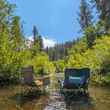

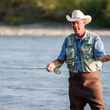



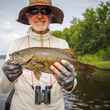


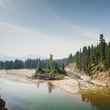




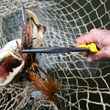













Comments
GregH replied on Permalink
The link to the current members of the subcommittee is http://naturalresources.house.gov/energyandmineralresources/#Members . It is important that they hear directly from individuals besides organized interest groups. We cannot assume rationale judgment will prevail. Hopefully enough voices are raised and the information in Randy Newburg's videos gets conveyed.
Pete Kieliszewski replied on Permalink
Nice story Katie McKalip but why did you exclude contact info to the Congressional Reps responsible for this legislation? Unless you've been instructed to leave it out, it seems you might reach a good number of people here who do more than just read and share.
Congressman Mark Amodei (Nevada)
(202) 225-6155
Congressman Diane Black (Tennessee)
(202) 225-4231
Pages